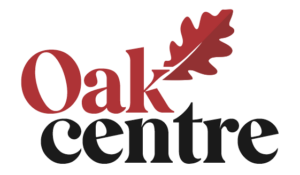The question hung in the air like the cloying scent of expensive oud.
The Honourable shifted in his chair, eyes half-closed in post-lunch satisfaction. A half-empty tumbler of malt sat sweating beside a glossy award plaque.
“Celebrate what?” he asked.
“The clean-up. The borehole. The press conference. All in one week. That’s… major.”
He smiled. “Ah. True. I’ve really worked. Maybe I should buy myself a new Prado.”
The room erupted in laughter. Even the intern chuckled, awkwardly. No one was sure if it was a joke or a plan.
And yet, behind the banter, a curious question simmered:
When did doing your job become an achievement?
The truth is, somewhere between ribbon cuttings and retweets, we started treating public service like a seasonal sport. One good week and you’re a legend. One project, and there must be a plaque, a billboard, a branded t-shirt, a reward.
But is the work tip of “rewarding yourself for tasks achieved” really as motivational as we think it is?
Take the common workplace wisdom:
- Set achievable goals
- Take regular breaks
- Reward yourself when you complete a task
Simple enough. Sensible, even. Until you start applying it to governance.
Should passing a bill come with a vacation? Should showing up for plenary trigger self-congratulation? Is attending committee meetings now worthy of a feast?
For years, I tried the reward formula. I promised myself suya for every finished report, a nap after each presentation. But the joy of the reward was never as sweet as the pressure of the expectation. It began to feel performative. Hollow. Like clapping for myself in a dark room.
Worse still, I punished myself more than I celebrated. Missed a deadline? Silence. Hit a target? Still silence, because even the celebration felt contrived.
Which brings me to a few uncomfortable questions for those of us in positions of public duty:
- Is the natural sense of fulfilment after completing a task not a reward in itself?
- Must service always be followed by ceremony?
- At what point does the pursuit of motivation become a form of self-indulgence?
- If I do my job and expect gifts, does that make it service or strategy?
- If I feel unmotivated to do the work unless there’s applause, am I still fit to do it?
Because here’s the irony: some legislators post “we rise by lifting others” while secretly measuring how many followers they gained after donating two bags of rice.
Some deliver boreholes and expect birthday cakes.
Some attend one community meeting and suddenly start referring to themselves as “the people’s honourable.”
Meanwhile, the work, the real, gritty, quiet work, often goes undone. Schools still leak. Hospitals still crumble. Budgets still disappear into the fog.
The people clap when they can. But mostly, they watch.
So maybe, just maybe, we should rethink what it means to reward ourselves in the public space. Maybe fulfilment is not in what we gift ourselves, but in the lives we actually shift. Maybe the real reward of public service is not applause, but accountability. Not celebration, but credibility.
And if we still feel the need to reward ourselves, fine.
Let it be with humility. With reflection. With renewed resolve.
Because one completed task is not the end of the journey. It is, at best, the beginning of a standard.
As for me, this was my first public reflection in a long time. I didn’t plan it. It just happened.
Should I reward myself?
Well, you’re reading this, aren’t you?
Your quiet attention is enough.
But if you feel like clapping, make it metaphorical.
Save the party for when we all get the job done.





